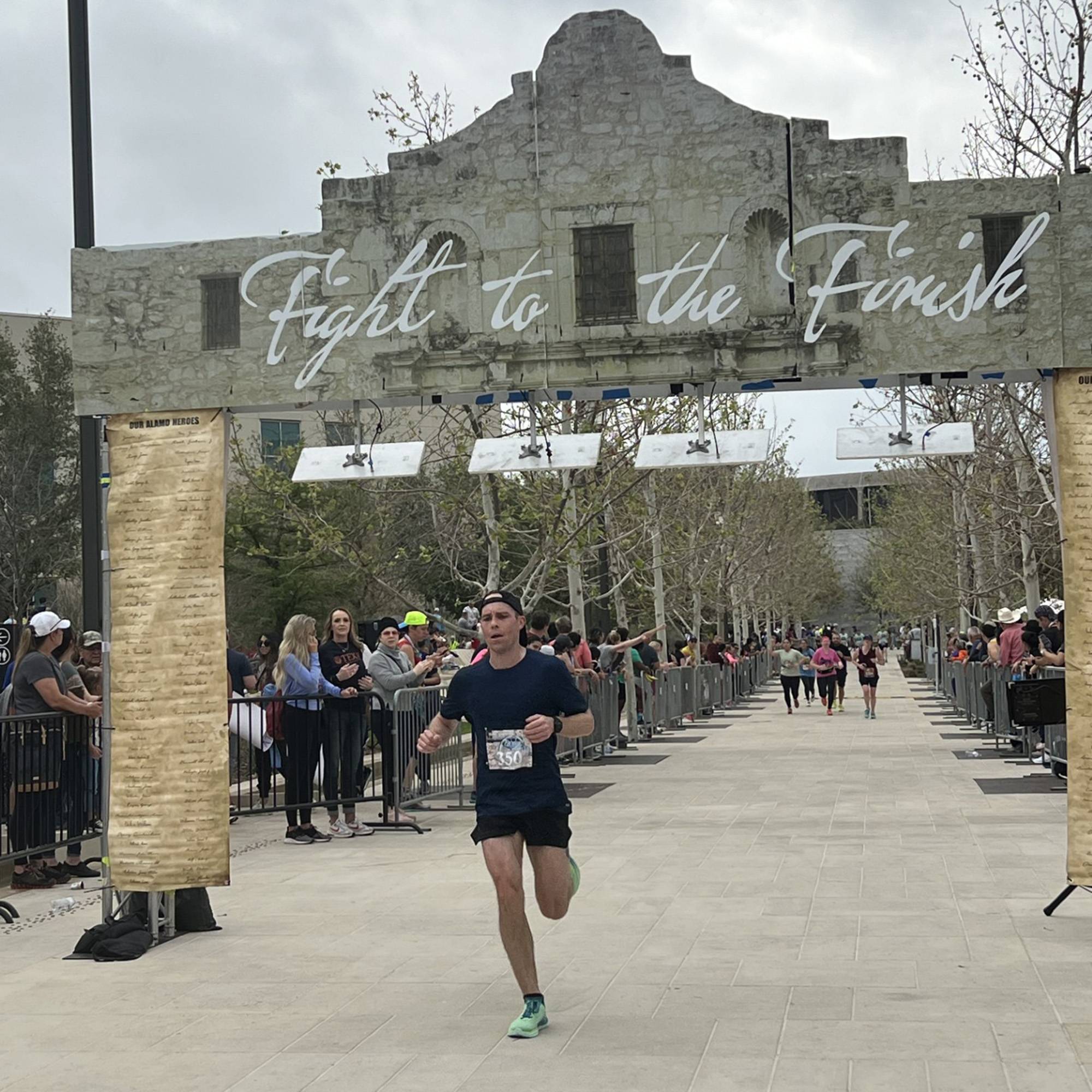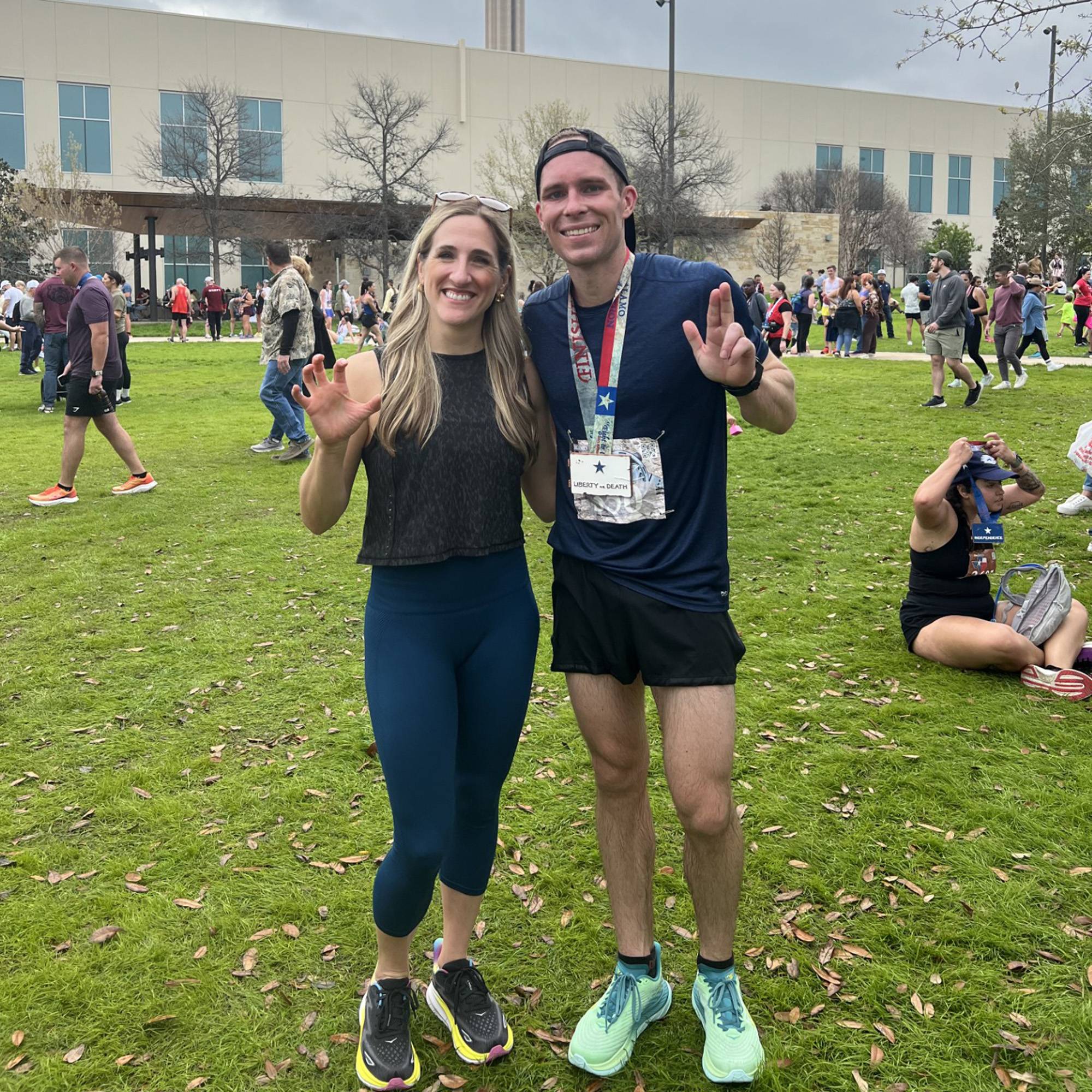Keeping pace: How hustle culture shapes startup funding
RESEARCH SPOTLIGHT
February 13, 2025
By Vallie Figueroa
Communications Specialist
McCoy College of Business
SAN MARCOS, Texas — A new study has found that entrepreneurs' leisure activities could influence the performance of their crowdfunding campaigns.
An "always on" narrative is a cultural norm in entrepreneurship that is frequently reinforced by society and mainstream media, including shows like Shark Tank and stories of the most successful business leaders, including Jeff Bezos and the late Steve Jobs, perceived as having worked nonstop to reach their level of success. This persistent hustle culture has become an institutionalized expectation — one that punishes deviation. Early-stage entrepreneurs are primarily held to this standard of workaholism by amateur investors.
"These stories are a key part of what investors are queuing their decisions on," Dr. Jake Waddingham, Garland Hunnicutt, Ph.D. Professor in Management at Texas State University’s McCoy College of Business said. "They see a powerful and very successful entrepreneur on TV who works these insane hours, so that creates this kind of founder mythology, this idea that that is what an entrepreneur has to be. The media plays a very powerful role in telling that story."
Dr. Katherine C. Alexander, an assistant professor of management at Loyola University Chicago and Waddingham's co-author, has experience in startup entrepreneurship and supported fintech companies before becoming an academic.
“This founder mythology has become an almost required hero’s journey of what it takes to be successful as an entrepreneur,” she said. “Unfortunately, this narrative can be really harmful to founders, leading to burnout, and ultimately, impacting their health.”
Waddingham, Alexander, and their colleagues studied how disclosing leisure activities in startup campaigns could affect entrepreneurs' ability to secure funding.
The findings, published in the Journal of Business Venturing, found what they called a "leisure paradox.” Despite evidence highlighting the positive impact of entrepreneurs engaging in leisure activities, those who mentioned personal time away from work — specifically time spent engaging in leisure activities like exercise — in their fundraising campaign on crowdfunding platforms were perceived as less legitimate, leading to less funding.
The research analyzed the written text of Kickstarter campaigns — a popular crowdfunding platform — and also conducted an online experiment. The experiment included two main conditions: an entrepreneur disclosing training for the marathon and one that did not mention any leisure activities. Both the Kickstarter data and the experiment found that those entrepreneurs who included leisure activities in their pitch to investors underperformed compared to those who didn't.
The irony is that research finds leisure activities can enhance business performance. Studies suggest that exercise improves cognitive function, downtime promotes creativity, and mental rest prevents burnout. Yet, early-stage investors often misinterpret an entrepreneur's time off as a lack of dedication rather than a strategic decision for long-term success.
"We know that taking time away from work, especially for leisure activities like running, working out, [or] even watching TV are important for our physical and mental health," Waddingham said. “However, when we think about entrepreneurs, we often think about them like the individuals we see on Shark Tank who talk about hustling all the time. So, we explored that tension between entrepreneurs who were trying to fundraise for their new business and investors who were critiquing if it was worth donating or contributing their money to the crowdfunding campaign. The ones that disclosed their leisure activities tended to perform worse.”
Waddingham said investors' perception that entrepreneurs should constantly be engrossed in their business and choosing to invest instead in those who don’t share details about their leisure activities could be hurting their prospects.
"If you are looking for an investment opportunity and you write somebody off just because of what they like to do in their free time, I think that is critically misevaluating the potential of the business and the entrepreneur," Waddingham said. "Just because I am out for a run does not mean I am not still thinking about work, or I am not trying to work through problems. I'm just not staring at a computer screen while I am doing it, so using hobbies or leisure activities as a proxy for talent or potential is not a good practice for these amateur investors."
Alexander agreed with Waddingham and said leisure activities can be an “outlet for stress management.”
“I tend to think through my research problems while cooking a meal or trying a new recipe,” she said. “Despite our differing leisure activities, we [Waddingham] were both surprised and a little bit saddened to see founders negatively impacted financially for sharing their hobbies with amateur investors.”
Notably, the study found that women investors were much more lenient when investing in startup campaigns that mentioned the entrepreneurs' leisure activities.
"It is well documented in prior research that women face [many] challenges with meeting expectations at work in addition to the expectations of caring for a family or engaging their own hobbies," Waddingham said. "Therefore, they are able to see through some of those ‘greedy’ social norms and understand that they are not a realistic measure of how good the entrepreneur is. [...] They understand that leisure time is also important, and [entrepreneurs] can participate in non-work activities without sacrificing how good of an entrepreneur they can be."
Alexander said women tend to “wear many hats, professionally and personally.”
“It was not surprising to me that women investors were more lenient towards founders taking time for themselves,” she said. “I believe that women investors see the sacrifices necessary to own a business but are more understanding of individuals taking time for self-care.”
This finding could give early-stage entrepreneurs insights into potential strategies when seeking investment and understanding the demographic makeup of their investors.
A Change of Pace: The Anti-grind Movement
Despite the deeply ingrained "workaholic" culture in entrepreneurship, a cultural shift is taking shape among the most successful entrepreneurs and their interest in building a sustainable work-life balance. This "anti-grind" culture has started making waves and questions the validity of workaholism being central to entrepreneurship. Waddingham pointed out influential entrepreneurs like Mark Zuckerberg, who participates in mixed martial arts, and Richard Branson, who credits leisure activities like running and biking as an important part of his success story.
"It is encouraging to see some CEOs and other entrepreneurs speaking out against [hustle culture]," Waddingham said. "I think as those stories start to become more mainstream and get told more often, it will help get away from this idea that entrepreneurs have to be on all the time."
Alexander highlighted Sara Blakely, the founder of Spanx and Sneex, as a progressive entrepreneur who embraces a healthy work-life balance lifestyle.
“[Sara Blakely] and her husband, Jesse Itzler host an annual charity event called Hell on the Hill, a backyard race where participants run up and down a steep hill 100 times,” she said. “She famously shares her love of French fries, commitment to motherhood, and supporting other women founders to social media followers daily.”
For now, though, Waddingham cautions startup entrepreneurs about disclosing their leisure activities in their investor campaigns.
When entrepreneurs are fundraising, especially early-stage entrepreneurs, storytelling is a critical part of a successful campaign. Crowdfunding platforms like Kickstarter even encourage entrepreneurs to provide personal details about themselves.
"Our recommendation is to be cautious about what personal information you share when fundraising, especially where the interactions are mostly online. We still think entrepreneurs should participate [in leisure activities]. That personal detail just may not be a crucial part of their pitch to investors at this stage."
Waddingham shared that entrepreneurship is inherently difficult, and it often requires an entrepreneur to work long, sometimes atypical hours, along with a relentless dedication to the business. It can especially be challenging for those with families and other obligations. Many are turned off by the prospect of always having to be on regarding their work and decide never to start a business. Others try and then exit entrepreneurship altogether, opting for a more stable option, such as a profession in a traditional nine-to-five environment.
"It's a challenging paradox because entrepreneurship is hard. It does take a lot of hours," Waddingham said. "What we try to highlight here is that those intense periods of work and those challenges that entrepreneurs face don't have to be their only story." ✯


For more information about this story or other news, email Vallie Figueroa, communications specialist for the McCoy College of Business, at vlf23@txstate.edu.
About the McCoy College of Business
Established in 1970, Texas State’s business school officially became the McCoy College of Business in 2004 following a transformational gift of $20 million by Emmett and Miriam McCoy. The college, which offers classes in San Marcos, Round Rock, and online, is accredited by AACSB in both business and accounting, and has graduated more than 45,000 alumni.
Marketing and Communications
McCoy Hall 322
Texas State University
601 University Drive
San Marcos, TX 78666
512.245.2990